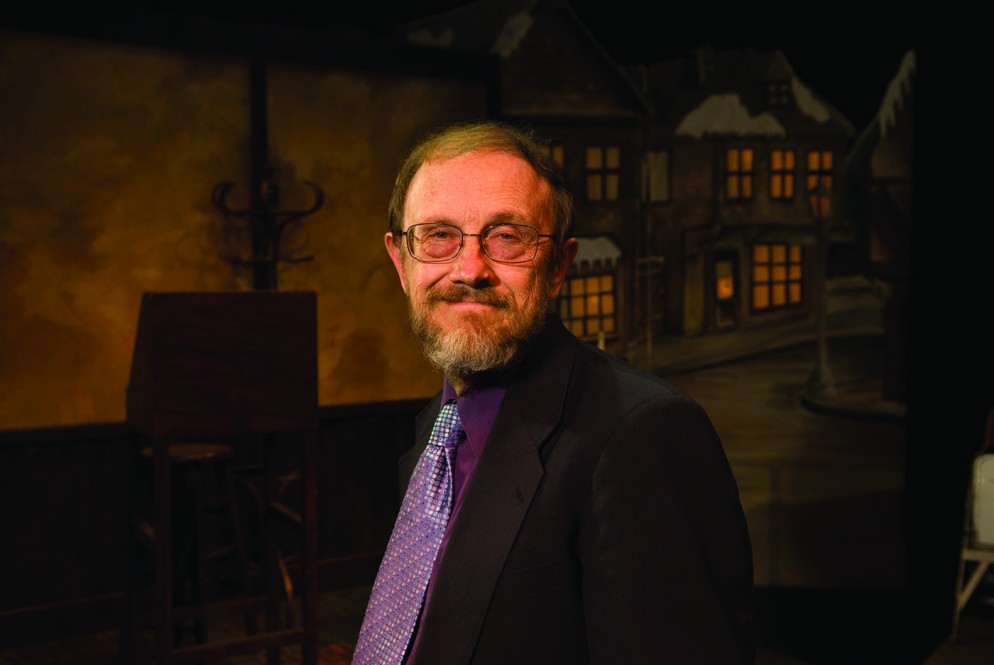Joe E. Mattys ’67 has seen Colorado College from both sides: as a student hungry for the Next Big Question and a teacher eager to pose it.
“My first teaching job after my M.A. and a stint in the Army was back at CC,” says Joe, who taught theater from 1972 to 1977. “It was interesting to return as a colleague, albeit a very junior colleague, of some of the same faculty who had taught me five years earlier.”
Back in 1963, though, Joe had no idea he would study theater, much less become an honored professor in the field at Randolph-Macon College in Virginia. As so many students have before him, he just knew that anything was possible.
“It sounds corny,” he says in a phone interview, “but it’s pretty genuine: it was the intellectual atmosphere, the excitement of grappling with the great questions and learning stuff.”
The New Mexico native had been intrigued by theater for a long time. But he began his first year intending to major in English.
“We had Tom Ross, Neale Reinitz, and the indomitable Bill Hochman teaching in the Selected Students program,” Joe says, his voice warm with the memory. “But I began to be attracted to psychology in sophomore year.”
It turned out that the college’s coursework focused on the physiological side of psychology, however. Not so compelling to Joe. What about theater?
“My adviser was (psychology professor) Gilbert Johns. He said, ‘If you really want to be a theater major, then I think you should be one.’”
Joe pursued theater, working on every CC production during his time as a student. He learned a lot, he says, including one pivotal lesson from Theater Professor Bill McMillen and the student-created Theatre Workshop: empower students to pursue their own projects.
“It was a very exciting period. I used it as a model for my own teaching . . . to encourage student work.
He goes on: “It really was a place where you were expected to activate your brain, to talk and think and not just sit there and take classes. That’s always been my ideal in teaching: to always get students to engage with the world and not just regurgitate the information back to me.”
After graduating, he went on to earn a master’s degree in theater at Illinois State University and an MFA at the University of Virginia.
When he returned to CC in 1972, Joe found at least one fundamental change.
“The Block Plan was an even more exhilarating version of the adventuresome academic atmosphere that I enjoyed as a student,” he says of the program, then two years old. “I did some of my most innovative work there . . . and developed content that I continued to use over the next 40 years
of teaching.”
After a handful of other teaching posts, Joe joined the faculty of Randolph-Macon College in Ashland, Va., in 1990. There, he directed 50 school productions, including more than 100 performances of “A Christmas Carol” (“Families have come to it for 20 years”). In 2005, he became the chairman of the Department of Arts.
Over the past few years, Joe directed the First-Year Experience Program at Randolph-Macon, which paired professors in a year-long study of themes from contrasting points of view. (His favorite theme: identity, which he taught with a psychology professor.) And in 2009, Joe was honored with the college’s Samuel Nelson Gray Distinguished Faculty award.
He retired in May and was awarded the Bruce Unger Award for his 24 years of service to the college.
“I’ve decided to not go cold turkey into retirement. I’m teaching one course in our new First-Year program. And even though I’ve retired, I’ve been asked to direct ‘A Christmas Carol’ again this year.”
After that, Joe says, he’ll spend more time with family and other pursuits.
He laughs.
“I’m happy to catch up on 430 years of neglected reading.”
